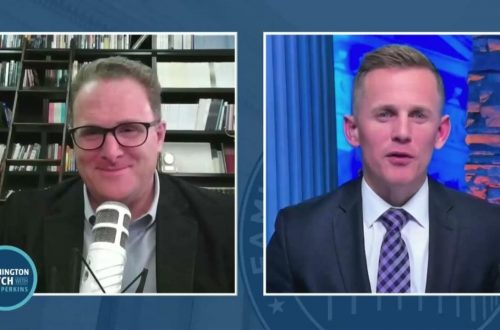Lee Irons has produced a substantive and persuasive response to Kevin Giles’s claim that the Fathers never understood MONOGENES to denote eternal generation. Lee’s work is heady stuff and unfolds in five separate posts. But it is worth the read if you can track with the Greek. I think Lee establishes that the Fathers did in fact view MONOGENES as an exegetical linchpin for eternal generation. The evidence he provides is quite compelling (even overwhelming). Here are links to all five posts.
Part 1 / Part 2 / Part 3 / Part 4 / Part 5
In his final post, Lee makes a crucial point that evangelicals would do well to consider. Many evangelicals have treated the doctrine of eternal generation as a kind of speculative theological deduction. This posture is due in large part to a misunderstanding of MONOGENES. Lee shows that this is mistaken:
I maintain that the doctrine of the two processions (the eternal generation of the Son and the eternal procession of the Spirit) is not a synthetic apprehension or a theological deduction. It is actually just saying as much as Scripture says and no more—the Son is “begotten” of the Father and the Spirit “proceeds” from the Father and the Son. That is what Scripture expressly teaches, in those very words, about the personal distinctions peculiar to each of the persons of the Trinity. The church fathers believed and taught these things, not because they deduced them theologically but because the Scripture itself says these things in those very words (“begotten,” “proceeds”).
Now I want to be clear. I’m not saying we should never engage in “synthetic apprehension” or “theological deduction.” The Westminster Confession affirms that “the whole counsel of God concerning all things necessary for his own glory, man’s salvation, faith and life, is either expressly set down in Scripture, or by good and necessary consequence may be deduced from Scripture” (WCF I.6). Often we do need to look at a large number of passages and make theological deductions. This is exactly what we are doing when we construct the doctrine of the Trinity. We are looking at everything Scripture teaches and putting the pieces of the puzzle together to form a coherent doctrine of God. The doctrine of the Trinity is biblically warranted, but the entire doctrine is not stated in one verse or even one passage.
What I am denying is that the biblical warrant for eternal generation is of the same character as the biblical warrant for the doctrine of the Trinity. As I read the church fathers, the Son’s being begotten of the Father is actually one of the constituent building blocks that is explicitly taught in Scripture, with chapter and verse to back it up. It is one of the things “expressly set down in Scripture” not one of the things that “by good and necessary consequence may be deduced from Scripture.” The church fathers viewed the Son’s being eternally begotten of the Father as one of the givens of Scripture, one of the pieces of the puzzle, one of the revealed facts that we must reckon with, not as a theological deduction after all the pieces of the puzzle are put together into a whole.
Again, I believe all five of Lee’s posts are important and would be worth your time to read. These are a part of a larger case that he is making about MONOGENES and eternal generation (his publications are forthcoming). Eternal generation is not a theological deduction. It is the explicit teaching of specific texts of scripture, and it always has been.



